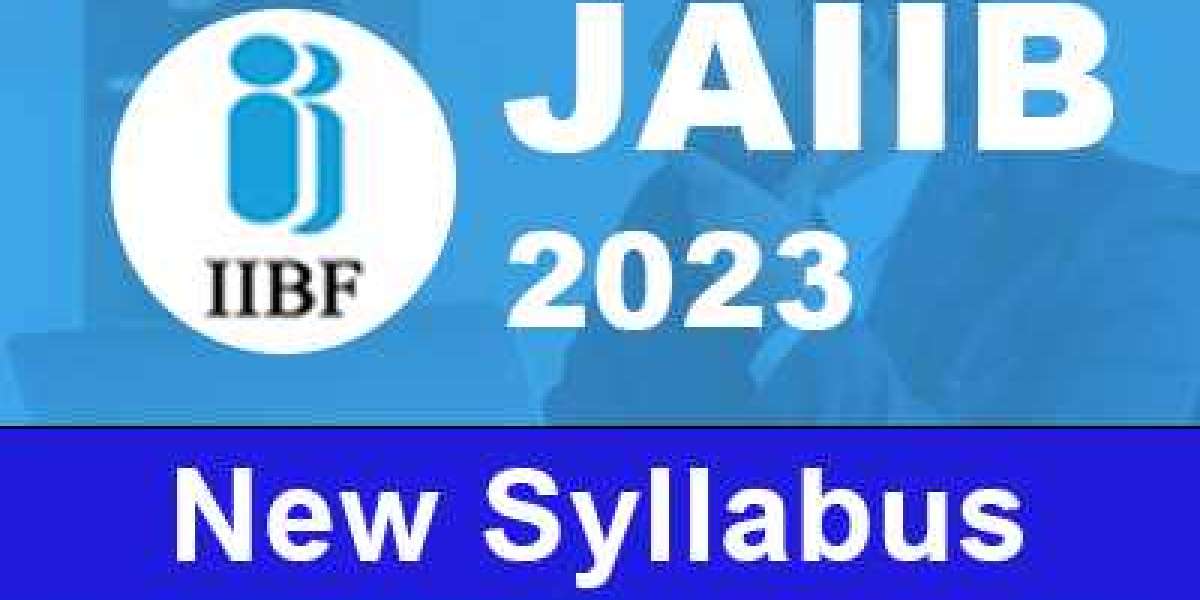The Junior Associate of Indian Institute of Bankers (JAIIB) examination is a prestigious certification that holds immense value in the banking sector. Designed to enhance the knowledge and skills of banking professionals, JAIIB is conducted by the Indian Institute of Banking and Finance (IIBF). To successfully navigate this examination, candidates must have a comprehensive understanding of the JAIIB syllabus. In this article, we will provide an in-depth overview of the JAIIB syllabus, shedding light on the three papers that comprise this essential certification.
Paper 1: Principles and Practices of Banking
The first paper of the JAIIB examination is "Principles and Practices of Banking." This paper serves as the foundation for the subsequent papers and covers a wide range of topics, ensuring that candidates have a strong grasp of the fundamental principles of banking. The syllabus for this paper includes:
- **Indian Financial System**: Understanding the structure and functioning of India's financial system, including banks, non-banking financial institutions, and regulatory bodies like RBI.
- **Functions of Banks**: An in-depth look at the various functions of banks, such as lending, deposit-taking, and payment systems.
- **Banking Technology**: Exploring the role of technology in modern banking, including digital banking, electronic fund transfer systems, and cyber security.
- **Regulatory Aspects of Banking**: Understanding the regulatory framework governing banks, including Basel norms, KYC guidelines, and anti-money laundering (AML) measures.
- **Accounting and Finance for Bankers**: Delving into the principles of accounting, financial statements, and credit appraisal techniques.
- **Legal and Regulatory Aspects of Banking**: Examining the legal aspects of banking, including laws related to negotiable instruments, banking ombudsman, and consumer protection.
Paper 2: Accounting and Finance for Bankers
The second paper, "Accounting and Finance for Bankers," focuses on providing candidates with a deep understanding of financial concepts and banking operations. This paper includes the following topics:
- **Business Mathematics and Finance**: Covering essential mathematical concepts such as ratios, percentages, and interest calculations, along with financial management principles.
- **Financial Statements**: Analyzing financial statements, including balance sheets, income statements, and cash flow statements, to assess a bank's financial health.
- **Analysis of Financial Statements**: Techniques for evaluating a bank's performance and creditworthiness through financial statement analysis.
- **Fundamentals of Costing**: Understanding cost accounting principles and their application in banking operations.
- **Basic Economics**: Exploring economic concepts such as inflation, money supply, and monetary policy, with a focus on their relevance to banking.
Paper 3: Legal and Regulatory Aspects of Banking
The third and final paper, "Legal and Regulatory Aspects of Banking," delves into the legal framework governing the banking industry in India. This paper includes the following key topics:
- **Regulations and Compliance**: Understanding the various regulations, guidelines, and compliance requirements that banks must adhere to, including those related to asset classification, provisioning, and income recognition.
- **Banking-related Laws**: An in-depth exploration of banking-related laws and acts, including the Banking Regulation Act, Negotiable Instruments Act, and SARFAESI Act.
- **Laws Relating to Bills of Exchange**: Detailed examination of the legal aspects surrounding bills of exchange and promissory notes.
- **Customer Relations**: Addressing legal issues related to customer rights, duties, and dispute resolution mechanisms.
- **Banker-Customer Relationship**: Analyzing the legal implications of the relationship between banks and their customers, including the rights and responsibilities of both parties.
Conclusion
In conclusion, the JAIIB syllabus is a significant step in the career progression of banking professionals. A thorough understanding of the syllabus is crucial for success in this certification. The three papers, Principles and Practices of Banking, Accounting and Finance for Bankers, and Legal and Regulatory Aspects of Banking, cover a wide array of topics that encompass the essential knowledge and skills required in the banking industry. Candidates who master these subjects not only enhance their career prospects but also contribute to the efficiency and integrity of the banking sector in India. Therefore, diligent preparation and a commitment to mastering the JAIIB syllabus can pave the way to excellence in the world of banking.
Read More: - https://www.myonlineprep.com/blog/articles/jaiib-new-syllabus-2023
Follow Us on Facebook: - https://www.facebook.com/myonlineprep/
Follow Us on Twitter: - https://twitter.com/myonlineprep
Follow Us on YouTube: - https://www.youtube.com/myonlineprep
Follow Us on Linkedin: - https://www.linkedin.com/company/myonlineprep/
Address: - Rafin Education India Pvt Ltd 405, Emarat Firdaus, Exhibition Road, Patna - 800006 (IN)
Call US: +91 92641 49917
Email US: - [email protected]






